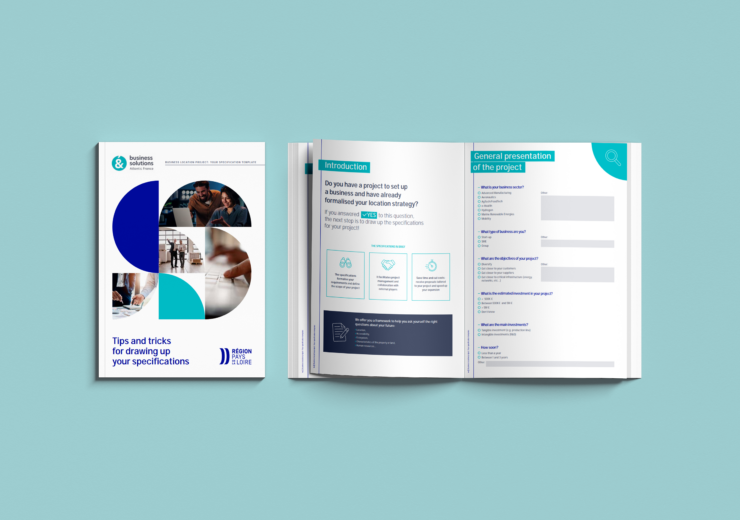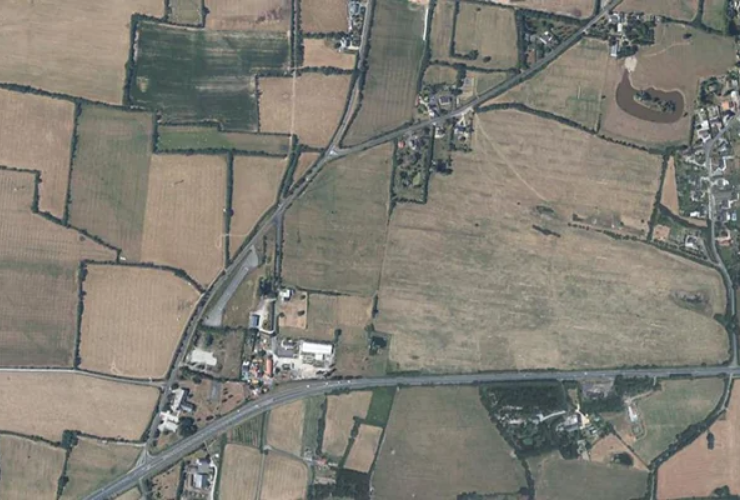Scale-ups are the new generation of fast-growing companies. Although often confused with start-ups, they represent very different realities. Their rapid growth presents significant challenges in terms of financing, organisation, and management.
Let’s take a look at the specific characteristics of these maturing companies!
Scale-up: definition
A scale-up is a company that has progressed beyond the start-up phase and entered a period of rapid, sustained growth. Unlike a start-up, which is still trying to validate its product and business model, a scale-up has already found its market and stabilised its business model. It typically generates consistent revenue and grows at an accelerated rate.
The generally accepted criteria for identifying a scale-up are:
- Annual growth of at least 20% over three consecutive years
- A minimum of 10 employees
- Sales of between €1 million and €3 million
- Often, one or more significant fundraising rounds are part of the process
Scale-ups are characterised by their ability to scale operations. They structure their teams, expand internationally, and industrialise their offerings to accelerate growth while managing risk and boosting profitability.
The fundamental differences between start-ups and scale-ups
Although both types of business share an entrepreneurial drive to break new ground through innovation, they differ greatly in terms of how they operate, their needs and the challenges they face.
Start-ups seek to innovate and find a replicable business model. Scale-ups, on the other hand, aim to grow and conquer new markets.
Start-ups tend to have more flexible structures and informal governance. In contrast, a scale-up needs to be more structured to ensure growth across HR, finance, internal processes, management tools, and more.
While a start-up needs funding to develop its prototype and test the market, a scale-up needs to raise more funds to accelerate growth through recruitment, internationalisation, and R&D.
In short, a scale-up is a start-up that has grown and ‘scaled up’!

What is a unicorn?
In economics, the term ‘unicorn’ refers to an unquoted company that was founded less than ten years ago and has a valuation of over one billion dollars. The term was popularised in 2013 by investor Aileen Lee to highlight the rarity of such companies, akin to the mythical creature from which the name derives. Unicorns are also characterised by business models that prioritise rapid growth financed by fundraising over profitability.
The main characteristics of a unicorn are:
- Being an innovative company, often in new technologies
- Being privately held (not listed on the stock exchange).
- Demonstrating rapid growth
- Reaching a valuation of over one billion dollars during fundraising rounds, regardless of profitability or sales.
There are currently 22 unicorns in France, including BlaBlaCar, Doctolib, Back Market, Deezer, Mistral AI, ManoMano, and Veepee.
Source: Unicorn Society, February 2025
Scaling your business: the steps involved in transitioning from start-up to scale-up
The transition from start-up to scale-up doesn’t happen overnight. This change in scale is driven by a series of strategic stages that every manager must anticipate and plan for rigorously.
- Validate the scalability of the business model: before pursuing rapid growth, you must ensure that the business model can be reproduced on a large scale without sacrificing profitability. This requires the partial automation of processes, a sufficiently standardised or adaptable offering, and robust logistics.
- Invest in technology and management tools to support rapid growth: scale-ups need high-performance tools such as CRM, ERP, collaborative platforms, and reporting systems. These solutions enable real-time monitoring of key performance indicators and support informed decision-making.
- Structure the internal organisation: a clear organisational structure with well-defined roles is essential. Middle management becomes central in preventing founder overload. Support functions such as HR, legal, and finance must also be reinforced.
- Define an appropriate financing strategy: several phases of financing are often necessary to support hypergrowth. This may involve raising venture capital, securing guaranteed bank loans, or obtaining public subsidies. The challenge lies in securing the necessary resources while maintaining control over the company.
- Seek support from experts: various schemes exist to guide scale-ups. Bpifrance, French Tech, business angel networks, and specialist firms can support with structuring key areas, such as governance, taxation, and international strategy.
- Adopt an international mindset from the outset: an international vision is often the key to breaking new ground. This involves designing products or services for multiple markets, anticipating cultural or regulatory barriers, and investing in intercultural negotiation training.
- Preserve the company’s DNA and identity: in the race for growth, it’s easy to lose sight of your core identity. Yet a company’s values, mission and vision are foundational. Maintaining strong internal communication, team rituals, and governance aligned with the original values, as well as constant attention to the company’s raison d’être, is crucial. Poorly aligned growth can quickly become a hindrance rather than a driver.
Scaling up your business requires both personal commitment from managers and an organisation capable of structuring itself to absorb the complexities associated with growth.
What you need to know about industrial scale-up to make a successful transition
Industrial scale-ups design, produce, and market physical goods. As well as the challenges faced by all companies undergoing hypergrowth, they must also navigate constraints specific to their sector.
These challenges fall into four main areas:
1. Production: industrialisation without loss of quality
Transitioning from prototypes or small-scale production to large-scale manufacturing requires significant investment. Scale-ups need to optimise their supply chains, ensure a smooth ramp-up process, maintain product quality, and equip themselves with high-performance industrial tools, all while remaining agile. This critical phase can generate logistical pressures and often necessitates a complete overhaul of production processes.
2. Financing: significantly higher capital requirements
Unlike digital start-ups, industrial start-ups must finance heavy equipment, build up stocks of raw materials, and construct or adapt production sites. As a result, their capital needs are considerably higher.
3. Regulation: a more complex and demanding framework
Industrial scale-ups are subject to more stringent regulations regarding environmental standards, worker safety, quality certifications, and legal compliance. Incorporating these regulatory requirements into the scaling process helps to avoid legal obstacles or delays to marketing.
4. Internationalisation: a logistical and strategic challenge
Exporting physical products involves more complex logistics than providing services, including customs management, distribution, after-sales support, and adaptation to local regulations. To successfully scale internationally, industrial scale-ups must build a solid network of partners, such as distributors, subcontractors, and logisticians, and often need to consider multi-site production. This presents both strategic and operational challenges and requires specialised expertise.
If these challenges are anticipated effectively, they can provide a basis for differentiation in industrial scale-ups. Companies that succeed in combining rapid growth, industrial excellence, and environmental responsibility are emerging as key players in the new productive economy.
Inspiring examples from Atlantic France
The Atlantic France region is widely recognised for its entrepreneurial dynamism, with start-ups scaling up year after year and transforming into scale-ups.
Here are a few examples to illustrate this momentum:
- Expliseat (Avrillé, Maine-et-Loire): a specialist in ultralight transport seats, Expliseat opened its first assembly plant in the Angers metropolitan area in 2024, after raising €17 million in funding. Having already produced over 1,000 seats in a few months, Expliseat plans to manufacture over 10,000 by the end of 2025 and aims to reach an annual production capacity of 37,000 seats. It plans to recruit around 100 employees by 2027. Its mastery of industrialisation makes Expliseat a prime example of a successful regional industrial scale-up.
- VoltR (Saint-Barthélémy d’Anjou, Maine-et-Loire): specialising in battery reconditioning, VoltR has raised €3 million in seed funding to establish a production facility. The company plans to create 600 jobs by 2030, demonstrating both its industrial ambition and environmental commitment as it embraces the challenges of the energy transition.
- Anod (Fontenay-le-Comte, Vendée): this start-up raised €1.7 million in the i-Nov contest, supported by the France 2030 programme, to establish its first factory in Vendée. The company expects to assemble around 100 unique hybrid bicycles each month – bikes that can recharge using braking energy – at its new site.
Other start-ups that have scaled up their business in the Atlantic France region include:
- Shopopop (Nantes, Loire-Atlantique): the company has raised successive rounds of funding (€2 million in 2018, €4 million in 2020, and €20 million in 2021). It now employs 150 people and reports having delivered over €1 billion worth of groceries by 2023. Shopopop represents one of the finest examples of a successful transition from start-up to scale-up in the Atlantic France region.
- Other notable names in this dynamic landscape include Doctolib (based in Nantes and now one of France’s 22 unicorns), Underdog, and Néolithe.
Scale-ups are not just start-ups that have grown. They represent a significant change in size, accompanied by challenges that are often underestimated. In Atlantic France, they embody a new economic momentum at the intersection of innovation, industry, and international development. To overcome these challenges, these businesses require a robust ecosystem, suitable tools, and tailored support.
The Impact Program: dedicated support for industrial start-ups and scale-ups
Through the Impact Program, we support start-ups and scale-ups with their industrialisation in the Atlantic France region by providing:
- Help finding a suitable building or plot of land
- Administrative and financial support
- Accelerated integration into networks
- Recruitment assistance
Do you need to industrialise your business and scale up your operations?
Frequently asked questions:
A start-up is a young, innovative company exploring its market and validating its business model. A scale-up, on the other hand, has already achieved this and is entering a phase of rapid, structured growth. This is often accompanied by major fundraising, internationalisation, and organisational strengthening.
An industrial scale-up involves designing, manufacturing, and marketing physical goods. The process presents specific challenges relating to production, equipment financing, regulatory compliance, and international logistics.
A start-up is considered a scale-up if it achieves annual growth of at least 20% for three consecutive years, employs at least 10 people, and generates sales of between €1 million and €3 million. Scale-ups have often raised funds to support this growth.
Several companies illustrate the successful transition from start-up to scale-up in the region, including:
– Expliseat (mobility)
– VoltR (reconditioned batteries)
– Anod (soft mobility)
The Impact Program, run by Solutions&co in the Atlantic France region, offers tailor-made support to industrial start-ups and scale-ups, including:
– Assistance in finding a location
– Help with financing
– Networking opportunities
– Recruitment support
– Guidance with industrialisation


 日本語
日本語  Français
Français 



